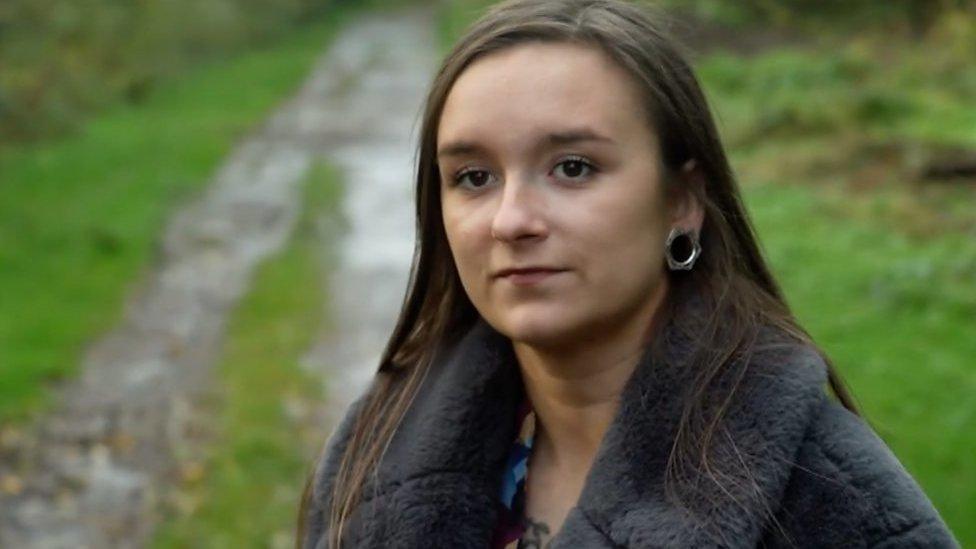Darlington bar security tightened after drink spiking claims
- Published
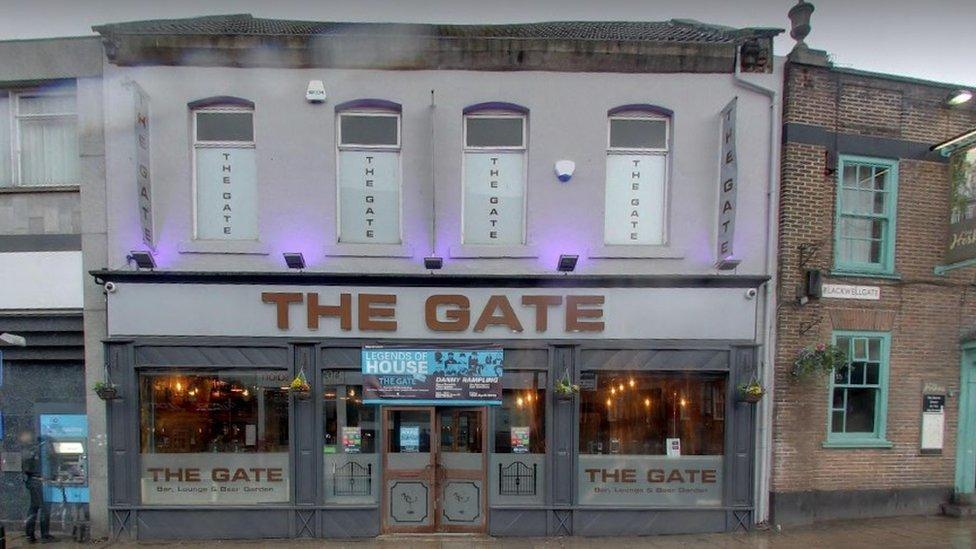
Durham Police said it was reviewing CCTV footage from the bar
A bar has increased safety measures after two reports of drinks being spiked in a week.
Mustafa Babat, owner of The Gate in Darlington, said he had increased CCTV coverage and the council has put in a help button after police were alerted.
One woman said she had suffered projectile vomiting after being targeted in the Blackwellgate bar and had needed her friends to get her home.
Durham Police said it was reviewing CCTV footage from the venue.
The town's Conservative MP, Peter Gibson, said he had also set up a meeting with the Home Secretary, Suella Braverman, about the concerns which he said had caused "alarm and distress".
Mr Babat said the situation had made him feel "angry and upset".
He said: "We are trying to make this place safe for people."
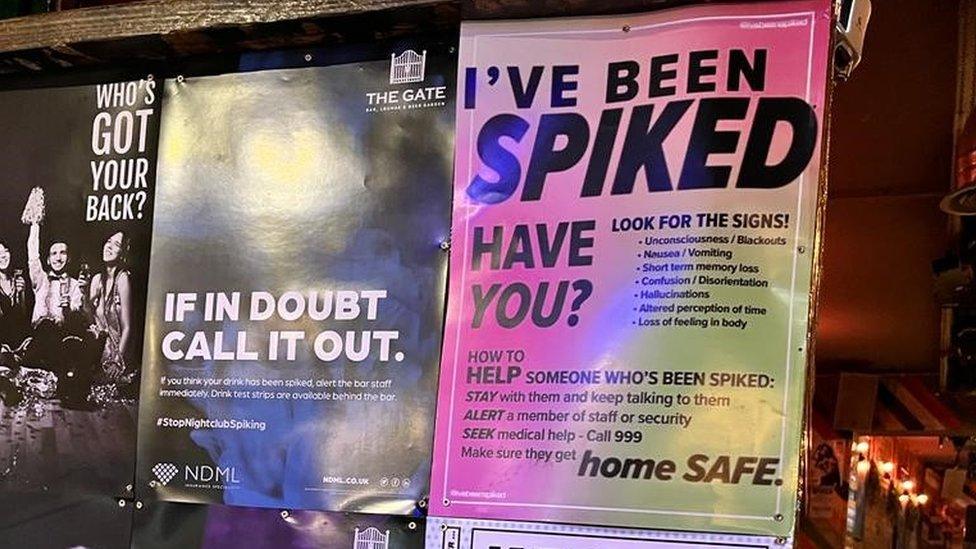
The venue's owner Mustafa Babat said the situation had left him angry and upset
One woman in her 20s, who believes she had her drink spiked in the bar on 28 December, said it took her several days to recover.
The woman, who does not wish to be named, said she suffered projectile vomiting and memory loss and needed help to get home because she could not stand properly.
She said she had been with eight friends when she got to The Gate just before 23:00 GMT.
She said: "I had the same drink the whole hour I was there.
"We went outside at one point and were dancing. I went to the toilet with a friend and when I got there I felt a sudden sickness.
"It was something I'd never felt before, it came out of nowhere, then the projectile vomiting started."
The victim said her vision also became blurred and her boyfriend had to take her home in a taxi.
She said she did not want to go to hospital and just stayed hydrated over the next few days while she recovered.
She added that the situation could have been a lot worse if she had been targeted when she was alone.
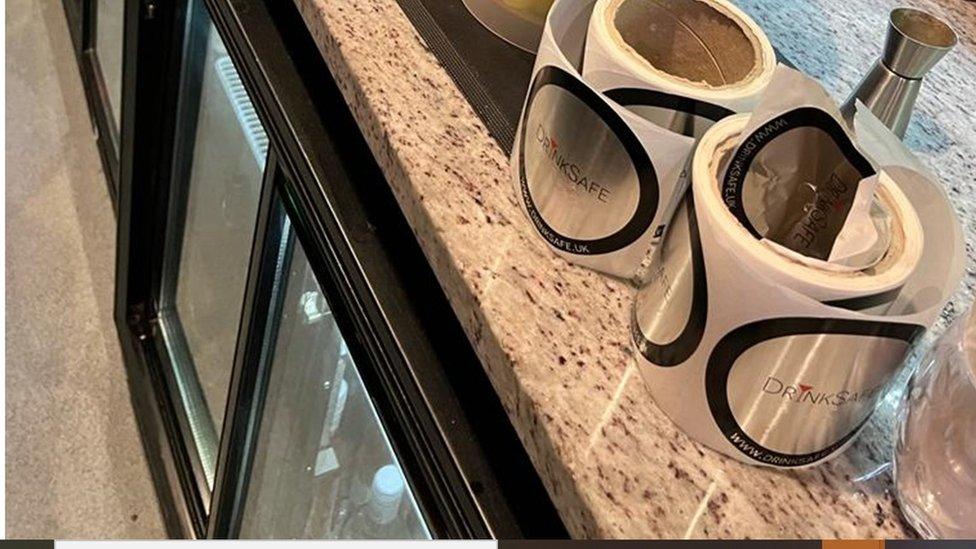
Two people have reported to police that their drinks were spiked at the venue over the last week
Mr Gibson said: "It's deeply concerning. There's alarm and distress in the community."
He said he had met local police chiefs and that he had been reassured they were taking the situation extremely seriously.
"People are rightly concerned - they want to go out and have a good time and feel safe," he said.
'Lot of hysteria'
He also said he felt reassured after visiting the venue and seeing covers for drinks, staff with body cameras as well as "extensive" CCTV.
Conservative councillor Mike Renton said there was a lot of "hysteria" on social media about spiking and he did not believe the situation was as bad as many people felt.
According to figures from the National Police Chiefs' Council (NPCC), 4,924 reports were made to UK police forces in the 12 months to September.
The most common drugs detected were cocaine, ketamine and MDMA, based on 800 tests carried out at that point.
However, only 3% of cases were found to "contain a controlled drug which supports a spiking incident".
The most common report was spiking by needle, with 2,581 cases recorded by police, closely followed by drink-spiking at 2,131 cases.
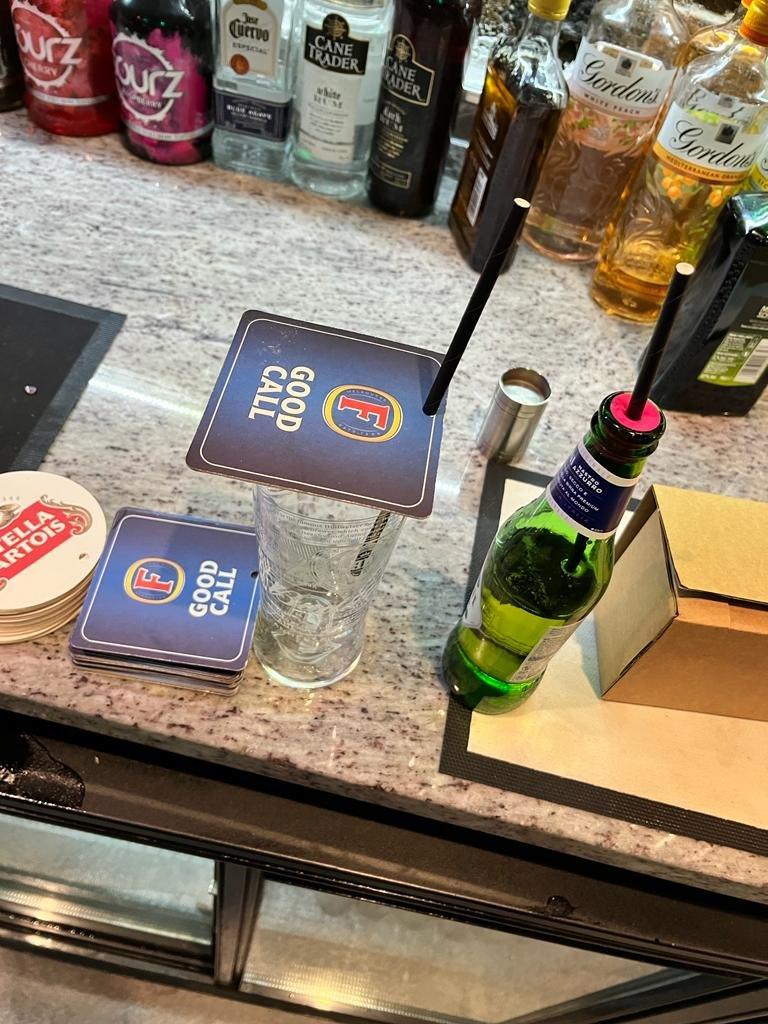
The bar has a range of "anti-spiking" devices
Insp Caroline Dickenson, of Durham Police's licensing unit, said she was working with staff at the venue and Darlington Borough Council to investigate the reports.
"Drink spiking is a serious offence which is incredibly complex and challenging to investigate. We will always take reports of this type of crime seriously," she said.
"Drugs can pass through the system quickly and there is often limited evidence to identify offenders.
"Therefore, if you believe you have been a victim of drink spiking, you must report it to police on 101 and seek medical attention immediately."
She also said that if people were not comfortable reporting spiking they could pick up testing kits at Number Forty in Skinnergate, a project run by the Safer Streets initiative.

Follow BBC North East & Cumbria on Twitter, external, Facebook, external and Instagram, external. Send your story ideas to northeastandcumbria@bbc.co.uk, external.
Related topics
- Published13 January 2023
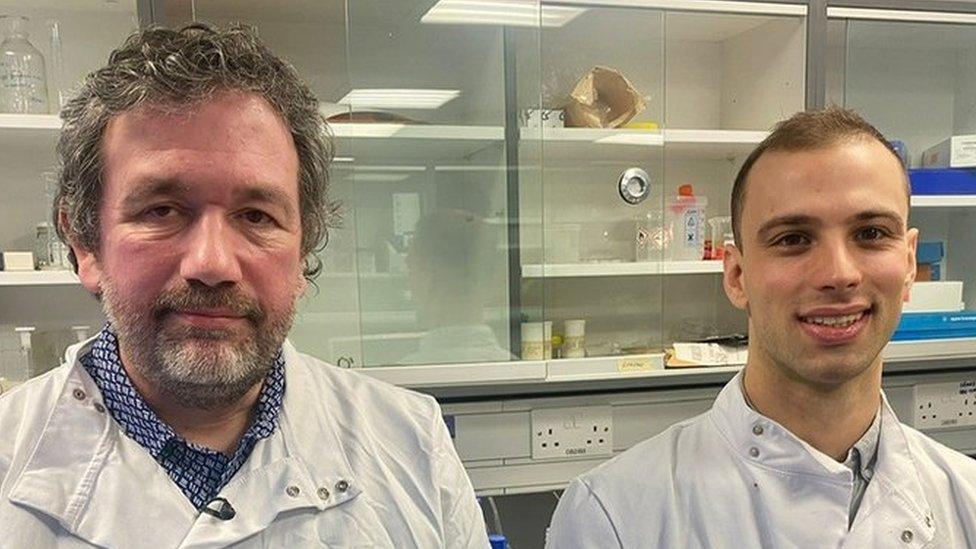
- Published27 October 2021
- Published20 October 2021
